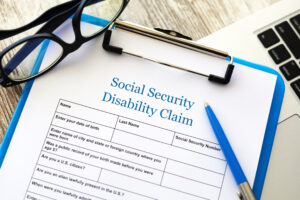Receiving a denial for your Social Security Disability (SSD) claim can feel like a major setback, especially when you are relying on these benefits for financial support due to a disability. However, it’s important to remember that a denial is not the end of the road. Many claims are initially denied but are later approved during the appeals process.
Understanding how to effectively challenge a denied SSDI claim can significantly increase your chances of approval. Here’s a guide to mastering the appeal process for a Social Security Disability claim. Contact PLBH at (800) 435-7542 for a free legal consultation.
Step 1: Understand the Reason for Denial
The first step in challenging a denied SSD claim is to understand why it was denied. The Social Security Administration (SSA) will provide a letter explaining the reason for the denial. Common reasons include insufficient medical evidence, the belief that your disability will not last long enough or is not severe enough, or that you can still perform work. Knowing the specific reason for your denial is crucial for addressing the issue in your appeal.
Step 2: File a Request for Reconsideration
If you believe the decision to deny your claim was incorrect, the next step is to file a Request for Reconsideration. This must be done within 60 days from the date you received your denial notice. During reconsideration, a different reviewer will examine all the evidence submitted with your original claim, along with any new evidence you provide. This is your opportunity to submit additional medical records, doctor’s statements, or other documentation that supports your case.
Step 3: Prepare and Submit Additional Evidence
Gathering additional evidence is key to challenging a denied SSD claim. This may include new medical records, tests results, or statements from your treating physicians detailing the extent of your disability and how it affects your ability to work. It’s also beneficial to include documentation of your treatment history and any medications you’re taking. The more evidence you can provide to support your claim, the better your chances of overturning the denial.
Step 4: Request a Hearing Before an Administrative Law Judge (ALJ)
If your claim is denied after reconsideration, you can request a hearing before an Administrative Law Judge (ALJ). This is a critical stage in the appeals process, as it allows you to present your case in person or via video conference. You can testify about your disability and how it impacts your daily life and ability to work. You can also have witnesses, such as family members or medical experts, testify on your behalf.
Step 5: Seek Professional Help
Navigating the SSD appeals process can be complex and overwhelming, especially when dealing with a disability. Seeking professional help from a PLBH that specializes in Social Security Disability law can make a significant difference in the outcome of your appeal. An experienced attorney can help you understand the process, gather and submit the appropriate evidence, and represent you at your hearing. They can also help you articulate your case in a way that highlights the key aspects of your disability and its impact on your ability to work.
Step 6: Appeal to the Appeals Council
If the ALJ also denies your claim, you have the option to request a review by the Social Security Appeals Council. The Appeals Council does not hold hearings but reviews your case to see if the ALJ made a mistake. They may either deny your request for review, decide your case themselves, or send it back to an ALJ for another hearing.
Step 7: Federal Court Review
The final step in the appeals process is to file a lawsuit in a federal district court. This step is taken if you disagree with the Appeals Council’s decision or if they decide not to review your case. A federal court review involves presenting your case to a federal judge, who will review the decisions made by the SSA for legal errors.
Contact an Attorney Today
While challenging a denied Social Security Disability claim can be a lengthy and complex process, it’s important to persevere. Many claims are eventually approved on appeal, especially with the right preparation and support. Contact PLBH at (800) 435-7542 for assistance in mastering your appeal and taking the next steps toward securing your benefits.

